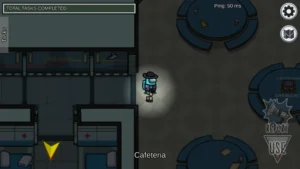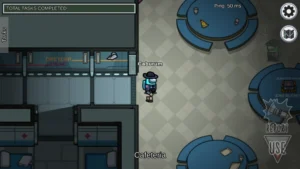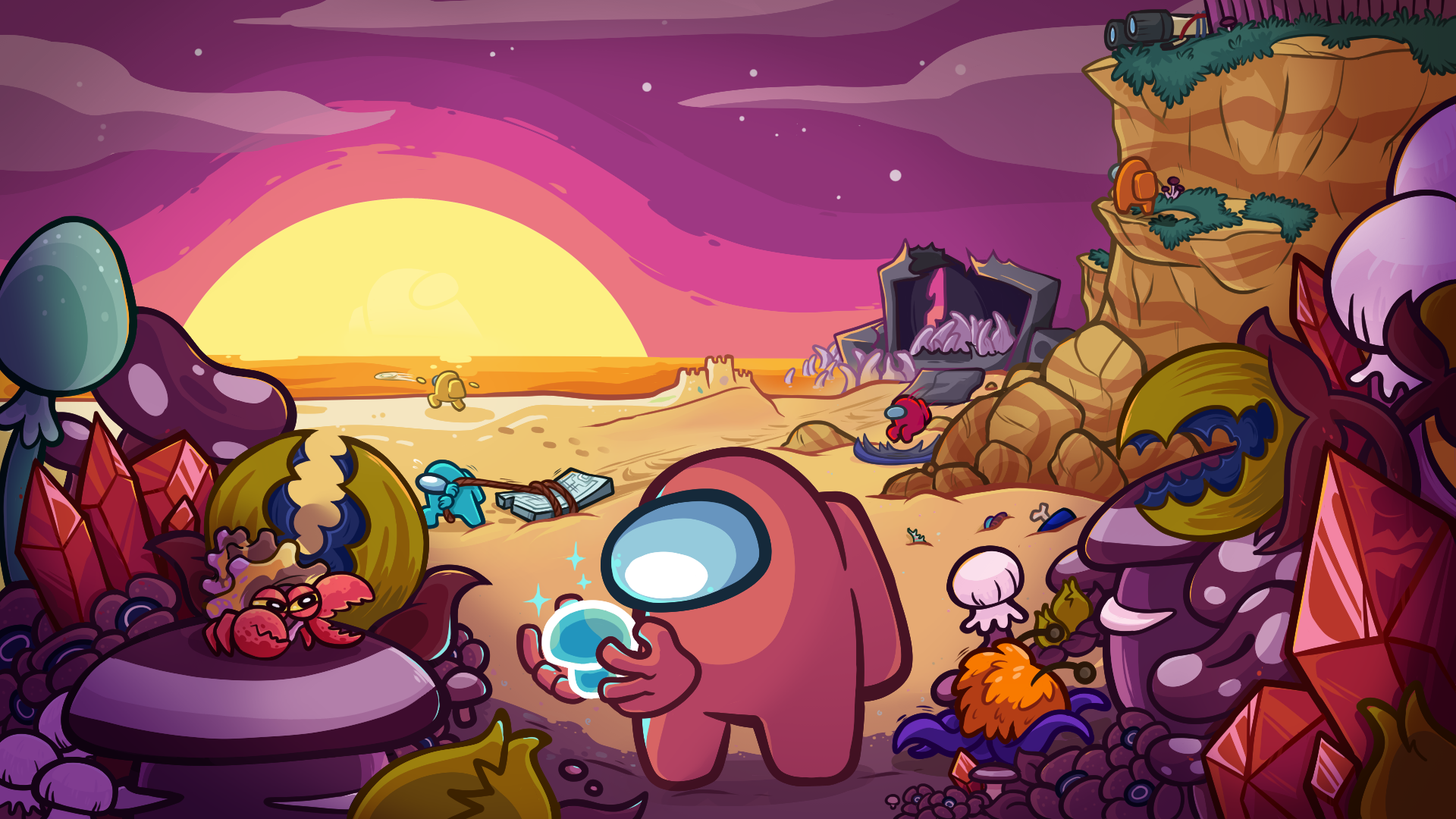Introduction
Among Us is a social deduction game (created by Innersloth) where players that take on the role of Crewmate are tasked with voting out players who are Imposters. The game allows for cross-platform play on iOS and Android devices, PC, Nintendo Switch, PlayStation, Xbox, and, recently, branched out to VR. The multiplayer game is intended for groups of four to fifteen players and enjoyable for all ages. The play test was done on Windows.
Argument and Analysis
As a self-proclaimed game centered around “teamwork and betrayal”, Among Us successfully emphasizes social deduction and conflict by using mechanics that incite deception or trust based on who gets information, and, consequently, attaching risk to decision making. When uncertainty escalates no matter what information is uncovered, the race to identify truths from lies is dependent on the identity of all that speak – especially when you’re the only person you can trust.
Among Us elevates the need for social deduction by placing value not just on gathering information but the identity of the crewmate that discovers it. The game emphasizes the importance of player identity with information hiding mechanics that can be either beneficial or harmful based on who shares it. Mechanics such as limited vision, tasks that can be faked, and venting can lead to false alibis and deception, but it can also lead to misdirection and information withholding in order to avoid suspicion. Several psychological principles such as confirmation bias and groupthink are encouraged through the time pressure set on voting, discussions, and emergency meetings. From this, strategies can be developed from bluffing, for example, pointing fingers at innocent crewmates to gauge reactions. When all players have an incentive to bluff and withhold information, there is a much larger motive to discover the identity of all those who speak since there is no longer a moral fault towards lying in game, appealing to the true nature of deception in a social deduction game.
By imposing dilemmas in the game through forced mechanics that all carry risk, the inherent conflict between player interactions forces crewmates to form alliances and cooperate to find the imposter. In an environment with unilateral competition where all players have an incentive to hide or bluff about the information they hold, Among Us efficiently persuades collaboration and vulnerability through mechanics that revolve around risky decision making, where the player can die without being directly killed by the imposter. Since players are allowed to kick, report, or vote out other players regardless of innocence, when combined with the pressure of the voting and discussion times, an individual player cannot defend themself, resulting in the need for fellowship, alibis, and knowing who to trust, appealing to the core of a social deduction game where players must figure out the role of others.


However, this also means that Among Us was cleverly designed to aid the imposter, as the decision making behind whether or not to kill a crewmate carries less risk with the additional information the imposter can gain. Imposters have a wider range of vision, can sabotage vital systems to distract crewmates from their tasks, have the ability to vent through rooms without being seen, and can easily blend in with crewmates by faking tasks. In a game where information is crucial, the imposter holds more information than each individual crewmate. This means that the only way for crewmates to win is to share the information they have and collaborate to make a plan. In a game like Mafia, for example, there lacks the urgency with specific roles like detective and doctor having more power and the ability to reveal information over the assassin. Additionally, Among Us appeals to fellowship by creating fear in being in the presence of just one other player, aided by the limited view of the camera and lights. Mechanics such as kill distance where the imposter must be at a particular distance to kill a crewmate spurs the notion that familiarity with just one other player can still be detrimental to survival, ultimately seeking comfort in numbers.



